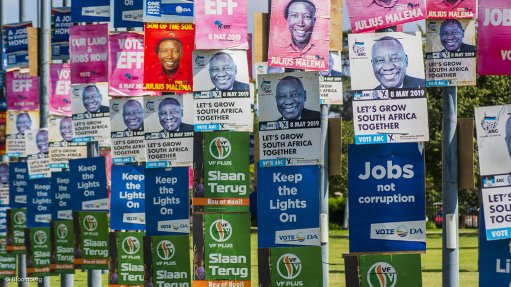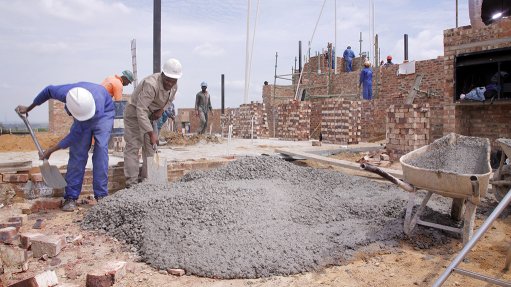ICC revising policy on transfer pricing, customs valuation
The instalment of this column published on October 17, 2014, titled ‘ICC revising policy statement on transfer pricing’, informed of the revision of the 2012 policy statement on transfer pricing and customs valua- tion that was prepared by the International Chamber of Commerce (ICC) informal drafting group on transfer pricing and customs valuation – consisting of members of both the ICC Commission on Taxation and the ICC Commission on Customs and Trade Facilitation – for approval by its members.
On February 10, the ICC released the 2015 update of its policy statement on transfer pricing and customs valuation, which supports companies that face the challenge of determining the appropriate related party valuation of goods in the context of disparity between governments’ customs and fiscal policies.
The frequent disparity between customs and tax regulations results in significant difficulties for international business and trade flows. The ICC strongly believes that tax and customs examinations should yield the same value, and the harmonisation of transfer pricing and customs valuation between related parties in an international context is in the interests of all concerned. For this reason, the ICC has called on governments to ensure convergence of fiscal and customs valuation approaches by implementing the tangible proposals that it outlined in its policy statement.
According to the ICC, the proposals put forward in its policy statement are designed to help simplify regulations for companies and administrations and to clarify rules for both parties to reduce the negative financial impact of divergent valuation. The ICC believes that the compliance costs of companies would be significantly reduced if tax and customs administrations were to accept and implement its proposals, which would contribute to a more coherent approach to cross-border trade. These policies would also minimise the risk of penalties resulting from opposing views between customs and tax authorities.
The policy statement was offered last month to the Organisation for Economic Cooperation and Development (OECD), within the context of the G20-mandated OECD Base Erosion and Profit Shifting taxation project. The OECD is working on a revision of its transfer pricing guidelines and the ICC believes that its policy statement will be helpful in this regard.
Further, according to the ICC, its policy statement will be included by the World Customs Organisation in its Revenue Package – to be released in the spring of 2015 – which provides guidance (tools and guidelines) for customs administrations around the world on their revenue collection.
Upholstered Furniture Tariff
On February 20, the International Trade Admin- istration Commission of South Africa (Itac) informed of the proposed amendment to the wording for qualifying fabrics under rebate item 320.01 for the manufacture of upholstered furniture.
Rebate Item 320.01/5407.61/01.06 reads: “Woven fabrics surface-treated to resemble suede containing 85% or more by mass of nontextured microfibre polyester filament yarns, of a mass exceeding 150g/m2 and of a width not exceeding 150 cm, in such quantities, at such times and subject to such conditions as Itac may allow by specific permit, for use in the manufacture of upholstered furniture classifiable in tariff heading 94.01.”
Rebate Item 320.01/5903.20.90/01.08 reads: “Other textile fabrics commonly known as imitation leather, laminated with polyurethane, in such quantities, at such times and subject to such conditions as Itac may allow by specific permit, for use in the manufacture of upholstered furniture classifiable in tariff heading 94.01.”
Rebate Item 320.01/5907.00.90/01.08 reads: “Textile fabrics commonly known as imitation leather backed with bonded leather, in such quantities, at such times and subject to such conditions as Itac may allow by specific permit, for use in the manufacture of upholstered furniture classifiable in tariff heading 94.01.”
The application was lodged by the Textile Federation of South Africa, which states that it has major difficulties with the wording, scope and coverage of the three qualifying fabrics under the rebate provision in the form that they were introduced, as there are fabrics that are manufactured locally that meet the description of the qualifying fabrics in the rebate provision. The federation’s argument is that the description under these tariff subheadings currently is so broad that it covers at least 80% of what is made in South Africa – or should it be the Southern African Customs Union (Sacu)?
Comment is due by March 13.
Glass Sunset Review
On February 20, Itac informed of the initiation of a sunset review investigation on clear float and drawn glass, classifiable in tariff subheadings 7004.90.90, 7005.29.17, 7005.29.23, 7005.29.25 and 7005.29.35 and originating in or imported from the Republic of China and India. The application was lodged by PFG Building Glass, the only producer of clear float in the Sacu region. PFG Building Glass alleges that the expiry of the antidumping duties would likely lead to the continuation or recurrence of dumping and the recurrence of material injury. According to the notice, PFG Building Glass submitted sufficient evidence and established a prima facie case to enable Itac to arrive at a reasonable conclusion that a sunset review investigation should be initiated.
The investigation period for dumping is April 1, 2013, to March 31, 2014, and the material injury investigation involves evaluation of data for the period of April 1, 2011, to March 31, 2014. The notice also indicates that Itac will also consider an estimate of what the situation will be if the antidumping duties expire.
Comment is due by April 1 (April Fools’ Day)!
Scrap Metal Export Control Guidelines
On February 13, Itac published an amendment to the price preference calculations contained in paragraph 4.2 of the Control Guidelines on the Exportation of Ferrous and Nonferrous Waste and Scrap. The amendment states that 30% will be deducted to reflect the price at which ferrous scrap metal must be offered for sale to the domestic consuming industry, and an amount of 25% will be deducted to reflect the price at which aluminium scrap metal must be offered for sale to the domestic consuming industry, while an amount of 20% will be deducted to reflect the price at which all other scrap metal must be offered for sale to the domestic consuming industry.
Customs Control Act Workshop
The South African Revenue Service (Sars), has extended an invitation to two representatives per company to attend its workshop on the draft rules for chapters 32 to 41 to the Customs Control Act. The workshop is scheduled for March 27, from 10:00 to 12:00, in the auditorium of Sars’ Linton House, in Brooklyn. To attend, you need to confirm your attendance by March 20.
Comments
Announcements
What's On
Subscribe to improve your user experience...
Option 1 (equivalent of R125 a month):
Receive a weekly copy of Creamer Media's Engineering News & Mining Weekly magazine
(print copy for those in South Africa and e-magazine for those outside of South Africa)
Receive daily email newsletters
Access to full search results
Access archive of magazine back copies
Access to Projects in Progress
Access to ONE Research Report of your choice in PDF format
Option 2 (equivalent of R375 a month):
All benefits from Option 1
PLUS
Access to Creamer Media's Research Channel Africa for ALL Research Reports, in PDF format, on various industrial and mining sectors
including Electricity; Water; Energy Transition; Hydrogen; Roads, Rail and Ports; Coal; Gold; Platinum; Battery Metals; etc.
Already a subscriber?
Forgotten your password?
Receive weekly copy of Creamer Media's Engineering News & Mining Weekly magazine (print copy for those in South Africa and e-magazine for those outside of South Africa)
➕
Recieve daily email newsletters
➕
Access to full search results
➕
Access archive of magazine back copies
➕
Access to Projects in Progress
➕
Access to ONE Research Report of your choice in PDF format
RESEARCH CHANNEL AFRICA
R4500 (equivalent of R375 a month)
SUBSCRIBEAll benefits from Option 1
➕
Access to Creamer Media's Research Channel Africa for ALL Research Reports on various industrial and mining sectors, in PDF format, including on:
Electricity
➕
Water
➕
Energy Transition
➕
Hydrogen
➕
Roads, Rail and Ports
➕
Coal
➕
Gold
➕
Platinum
➕
Battery Metals
➕
etc.
Receive all benefits from Option 1 or Option 2 delivered to numerous people at your company
➕
Multiple User names and Passwords for simultaneous log-ins
➕
Intranet integration access to all in your organisation


















